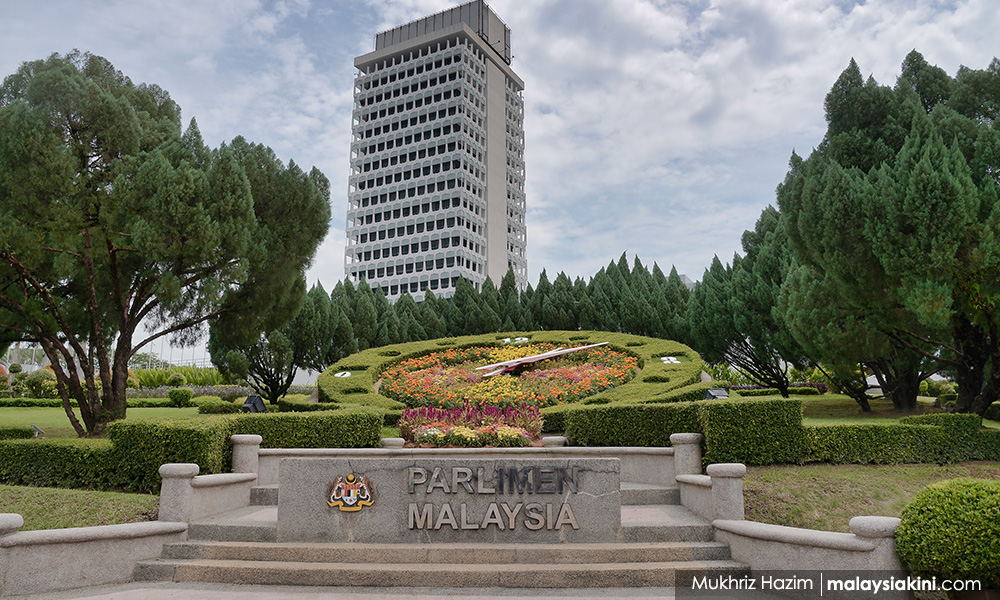Even with just a minimum of seven Umno MPs – the six in the court cluster plus Tengku Razaleigh Hamzah – pulling out from Prime Minister Muhyiddin Yassin's administration, the latter will officially be a minority government but it will not be unseated.
By announcing its pullout from the government, the Umno supreme council has made the best countermove against Muhyiddin’s surprise appointment of Ismail Sabri Yaakob and Hishamuddin Hussein as deputy prime minister and senior minister respectively.
It is strategically the best move to prevent an effective takeover of Umno by its pro-Bersatu warlords.
However, whether the anti-Bersatu leadership can prevail ultimately depends much on whether it can get most of the MPs and the menteri besars of Johor, Perak, Pahang, Malacca and Perlis to toe its line, or sack them if necessary.
The support of state governments with administrative power and resources is particularly important for Umno to sustain its grassroots, in its protracted fight against Bersatu because its pullout will only make it an official opposition party at the federal level until the 15th general election (GE15) is called.
Positive majority or negative majority
Many – politicians and members of the public alike – will jump on Article 43(4) of the Federal Constitution and demand that Muhyiddin step down immediately because he “ceases to command the confidence of the majority of the members of the House of Representatives”.
Such a simplistic reading ignores the fundamental difference between a negative majority against the incumbent and a positive majority for his/her replacement.
In countries like Germany, you cannot oust a chancellor without first having a new chancellor candidate who commands a majority. If no one else can gather such a majority, the minority government can continue to govern unless it chooses to trigger a snap election.
The mechanism that ensures a new chancellor will always enjoy a majority is called “a constructive vote of no confidence”. The Germans introduced, if not invented it, after the bitter experience of political instability in its Weimar Republic (1918-1933) which saw 14 chancellors in 15 years, paving the way for the rise of the Nazis.
Our Constitution does not have such provisions, because the UK we modelled our political system on was grounded in bipartism and also, we never had a hung Parliament – where no party/coalition commands a majority – until February 2020.
At the palace, only a 'constructive vote of no-confidence'
Up until the Perak constitutional crisis in 2009, a PM or menteri besar/chief minister could only lose his/her legislative majority in the House via four ways: passing of a motion of no-confidence tabled by his/her opponents (as how Ahmad Faisal Azumu was sacked as Perak MB last December), defeat of a motion of confidence tabled by the government, a rejection of the royal address (because the speech is prepared by the government, hence its rejection equates to a vote of no-confidence) and the defeat of budget.
None of this requires the availability of a PM/MB/CM replacement candidate who commands a positive majority.
In the Perak crisis, the monarch introduced a new method of regime change, lawmakers indicating their allegiance through statutory declarations without going to the House.
While this gives the monarch tremendous power to dictate or swing government formation which is unseen in mature constitutional monarchies from UK to Japan, it also produces an unintended positive outcome: a de facto “constructive vote of no-confidence”.
In other words, a PM/MB/CM cannot be ousted without a majority-backed replacement readily in place.

By calling a brief five-day parliamentary meeting to both concede to the palace’s desire and avoid an automatic dissolution by Aug 2 (for breaching the six-month gap between parliamentary sessions), the government has smartly postponed the threat of parliamentary defeat to the next meeting which will likely combine the royal address and the budget.
Only two ways out to end the stalemate
Hence, to oust the Muhyiddin government, his opponents must be able to present a positive majority for the next PM to the palace.
By rejecting opposition leader Anwar Ibrahim's prime-ministership and partnership with DAP, Umno has simply shot itself in the foot.
All in all, Umno's pullout will only make the Muhyiddin government officially a minority one, but will not end the latter's tenure.
As the country both cannot go without a government and cannot have an election now, allowing Muhyiddin to stay in power as a minority government is the most reasonable if not only solution. But Muhyiddin must behave as a minority PM, not acting as if he still has a majority.
A minority PM needs not be weak or a lame duck, but he or she must be humble enough to respect and consult the opposition to avoid a defeat. New Zealand PM Jacinda Ardern in her first term (2017-2020) was a minority PM. One of the world’s best-performing government leaders in managing the Covid-19 pandemic and economy, Ardern was subsequently rewarded with a majority in the 2020 election.
With the government and ministers fighting for their survival against Umno’s counterattacks, how many ministers can focus on the pandemic, economy or their respective portfolios?
The price that Malaysians pay for the Bersatu-Umno showdown may be reflected in the number of new cases within a week.

To break the stalemate without breaking democracy, there are only two realistic solutions: first, Muhyiddin reaching out to the opposition, whether Pakatan Harapan, Warisan or other minor parties for a Confidence and Supply Agreement (CSA) to secure a comfortable majority that enables governance. Second, Umno reaching out to Harapan to gather a positive majority and go to the palace.
Stop all the unnecessary dramas.
There's nothing wrong with politicians competing to keep or grab the top job. However, everything is wrong when they compete without offering better policy and governance outcomes to the nation, especially one that is in a triple crisis.
In the final analysis, the fundamental cause of Malaysia’s deepening political crisis, which in turn deepens its health and economic crisis, is not the emergence of a de facto hung Parliament since Feb 24, 2020.
It is the failure of political actors, from Muhyiddin to Anwar to Umno president Ahmad Zahid Hamidi and their parties/coalitions, to accept the new political realities and stop living in their outdated game. - Mkini
WONG CHIN HUAT is an Essex-trained political scientist working on political institutions and group conflicts. Mindful of humans' self-interest motivation while pursuing a better world, he is a principled opportunist.
The views expressed here are those of the author/contributor and do not necessarily represent the views of MMKtT.



No comments:
Post a Comment
Note: Only a member of this blog may post a comment.